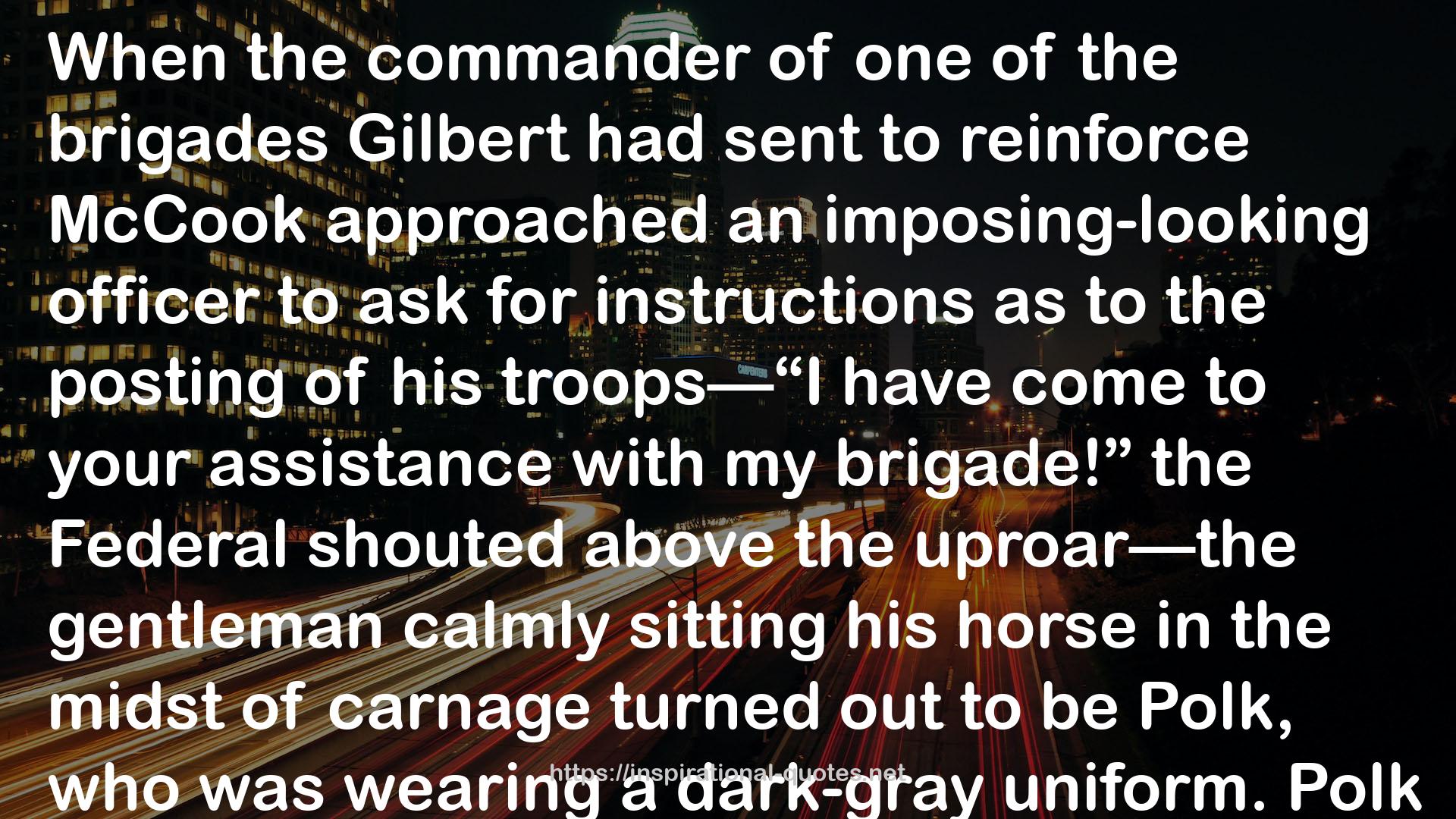" When the commander of one of the brigades Gilbert had sent to reinforce McCook approached an imposing-looking officer to ask for instructions as to the posting of his troops—“I have come to your assistance with my brigade!” the Federal shouted above the uproar—the gentleman calmly sitting his horse in the midst of carnage turned out to be Polk, who was wearing a dark-gray uniform. Polk asked the designation of the newly arrived command, and upon being told raised his eyebrows in surprise. For all his churchly faith in miracles, he could scarcely believe his ears. “There must be some mistake about this,” he said. “You are my prisoner.” Fighting without its commander, the brigade gave an excellent account of itself. Joined presently by the other brigade sent over from the center, it did much to stiffen the resistance being offered by the remnants of McCook’s two divisions. Sundown came before the rebels could complete the rout begun four hours ago, and now in the dusk it was Polk’s turn to play a befuddled role in another comic incident of confused identity. He saw in the fading light a body of men whom he took to be Confederates firing obliquely into the flank of one of his engaged brigades. “Dear me,” he said to himself. “This is very sad and must be stopped.” None of his staff being with him at the time, he rode over to attend to the matter in person. When he came up to the erring commander and demanded in angry tones what he meant by shooting his own friends, the colonel replied with surprise: “I don’t think there can be any mistake about it. I am sure they are the enemy.” “Enemy!” Polk exclaimed, taken aback by this apparent insubordination. “Why, I have only just left them myself. Cease firing, sir! What is your name, sir?” “Colonel Shryock, of the 87th Indiana,” the Federal said. “And pray, sir, who are you?” The bishop-general, learning thus for the first time that the man was a Yankee and that he was in rear of a whole regiment of Yankees, determined to brazen out the situation by taking further advantage of the fact that his dark-gray blouse looked blue-black in the twilight. He rode closer and shook his fist in the colonel’s face, shouting angrily: “I’ll soon show you who I am, sir! Cease firing, sir, at once!” Then he turned his horse and, calling in an authoritative manner for the bluecoats to cease firing, slowly rode back toward his own lines. He was afraid to ride fast, he later explained, because haste might give his identity away; yet “at the same time I experienced a disagreeable sensation, like screwing up my back, and calculated how many bullets would be between my shoulders every moment. "
― Shelby Foote , The Civil War, Vol. 1: Fort Sumter to Perryville
